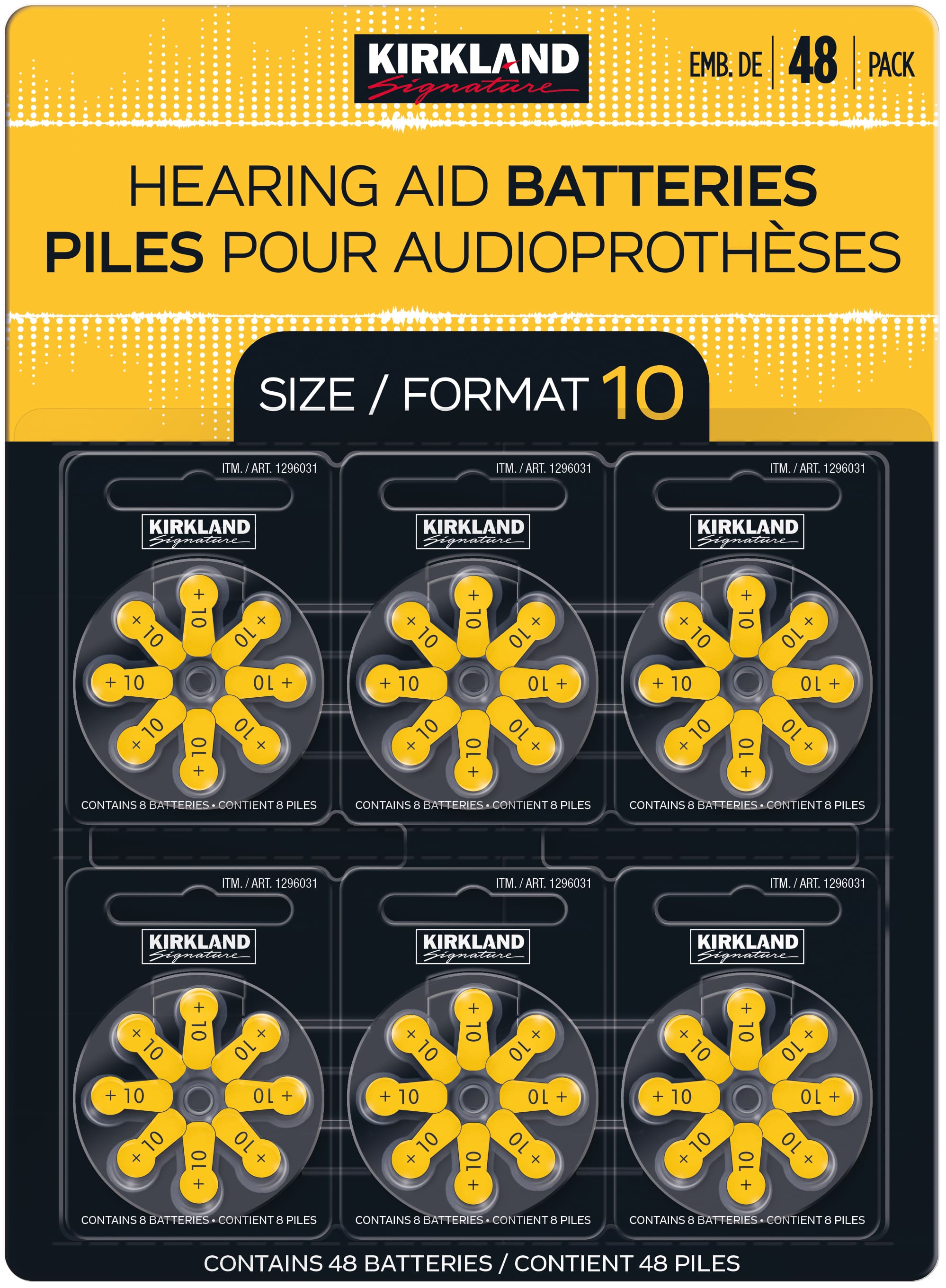Hearing Aid Batteries
Find at your local warehouse

Size Format 312
-Warehouse only

Size Format 13

Size Format 675

Size Format 10
How long should your batteries last?
The truth is there is no one answer that will work for every person. Essentially each person has a unique hearing loss "fingerprint". No one fingerprint will be exactly alike, therefore, no one person will have the exact same battery life as another.
The best way to get a good estimate on what your battery life should be is for you to test the battery.
Write down the date you put in the battery and then write the date of when you take it out. Once you have used all of the batteries in the package, you should be able to identify an average range of how long your battery should last.
Member Hearing Loss
As severity increases, increased amplification is required. This causes an increase in the current, which reduces battery life. Therefore, the more severe hearing loss a person has, the shorter the battery life.
Also hearing loss can vary from ear to ear. That means you shouldn't expect equal battery life.
Member Hearing Aid Usage
Most people refer to days when referencing battery life, but what is the definition of "a day" to each person? Some people only wear their devices 4 hours a day, while others wear them for 16 hours a day. Hours that the battery lasts is a more accurate way to compare battery life.
Hearing Instrument Itself
The more advanced the hearing aids are, the more power is required. This concept is similar to a cell phone. The more features you use on your phone (internet, apps, games, movies, etc.), the faster the battery is depleted.
Ear to ear communication, Bluetooth® connections, direct streaming from your TV and other accessory devices also cause more drain on the hearing aid battery.
Note: Zinc air batteries are not intended to be used with cochlear devices.
Humidity
As humidity is reduced batteries may dry out, reducing the battery life. This can be an issue if you are indoors during winter months in northern climates, use wood burning stoves to heat homes or keep batteries in dry aid kits in an already dry environment.
Temperature
As temperature is reduced, hearing aid battery voltage is lowered, which reduces battery life.
Altitude
As altitude increases the percentage of oxygen in the air is reduced, lowering the hearing aid battery voltage. This can cause the battery to reach the endpoint earlier.
Environment
The noise around you can affect battery life. A battery will drain less in libraries versus restaurants or rock concerts. Turning up the volume on your hearing instrument in a noisy setting can also prematurely drain the battery.
Store Batteries Away From Children
Batteries contain dangerous chemicals and must be handled and disposed of with care.
Store and discard batteries out of reach of infants and children.
Store Batteries At Room Temperature
Batteries should not be carried loose in your pocket or purse and should not be stored out of the package.
If a battery comes into contact with a metal object such as coins, keys or other batteries, the battery may short out, leak or even rupture.
Batteries Use Air For Power
Zinc air batteries use air as a source of power and the tab provides a seal that ensures freshness until the battery is ready for use.
To activate the battery, simply remove the tab, wait one minute to allow air to activate the ingredients and insert the battery into your hearing aid.
Fresh Batteries Are Best
Just like fresh vegetables are better than those from a can, a fresh battery is better than an aged battery. When batteries sit on a shelf or in a warehouse, they slowly lose their energy.
Temperature fluctuations and the slow seepage of air into the battery are some of the factors that can affect the life of the battery while it sits.

